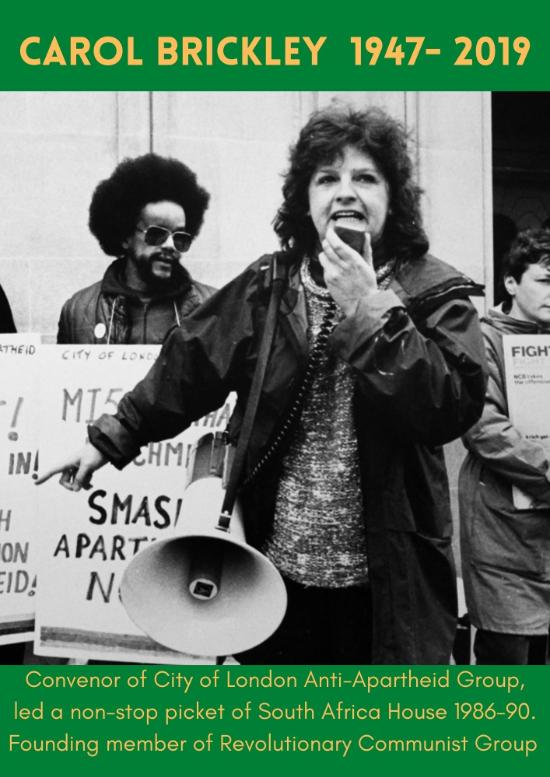Máire Drumm 1919-1976
Máire Drumm grew up in County Armagh, later moving to Dublin and Liverpool, then settling in Belfast where she worked as a grocer’s assistant. Having joined the Republican Movement in Dublin, in Belfast she dedicated herself to the campaign for prisoner welfare. When, in 1958, Crumlin Road Gaol stopped the delivery of letters and parcels to Republican inmates, Drumm led a protest to the prison gates – there the women faced down the batons of the prison wardens and occupied the gaol. They made sure the letters and parcels were delivered.
In 1969 the insurrectionary situation in Belfast and Derry produced a split in the Republican Movement, the revolutionary Provisional Movement emerged to lead the fight against British imperialist occupying forces. Maire Drumm emerged as one of its leaders becoming Vice-President of Provisional Sinn Féin. She was instrumental to Republican efforts to rehouse those driven from their homes by loyalist violence – in the meantime her own home became an open house for those who needed it.
In 1970, she led women in West Belfast in the famous breaking of the Falls Road curfew, the British Army had imposed the curfew in an attempt to trap and capture the local IRA unit. It was known then as the ‘Pram Invasion’, the women used prams to smuggle food and medicine into the estate and smuggle weapons back out of it, thus assisting those trapped inside to avoid arrest. Drumm had quickly become a prominent spokesperson for the movement, addressing huge rallies and taking part in television interviews, thrusting her into the public spotlight. Time and again she was arrested and gaoled for ‘seditious speech’. She was a thorn in the side of British imperialism
Drumm was also a believer in the centrality of culture to the revolutionary movement. She was a dedicated student of Irish history and a great lover of Irish sport and culture. As a member of the Camogie Association of Ireland she worked to encourage more Irish women to take part in Irish sports and her home in Belfast was used by the local community for Irish dancing classes.
On 28 October 1976, whilst recovering from an eye operation in Belfast’s Mater Hospital, Drumm was shot dead in her hospital bed by loyalist gunmen dressed as doctors. As the British press celebrated her demise, others asked why her location in the hospital had been so widely publicised in the days before and why hospital security melted away before the gunmen entered.





